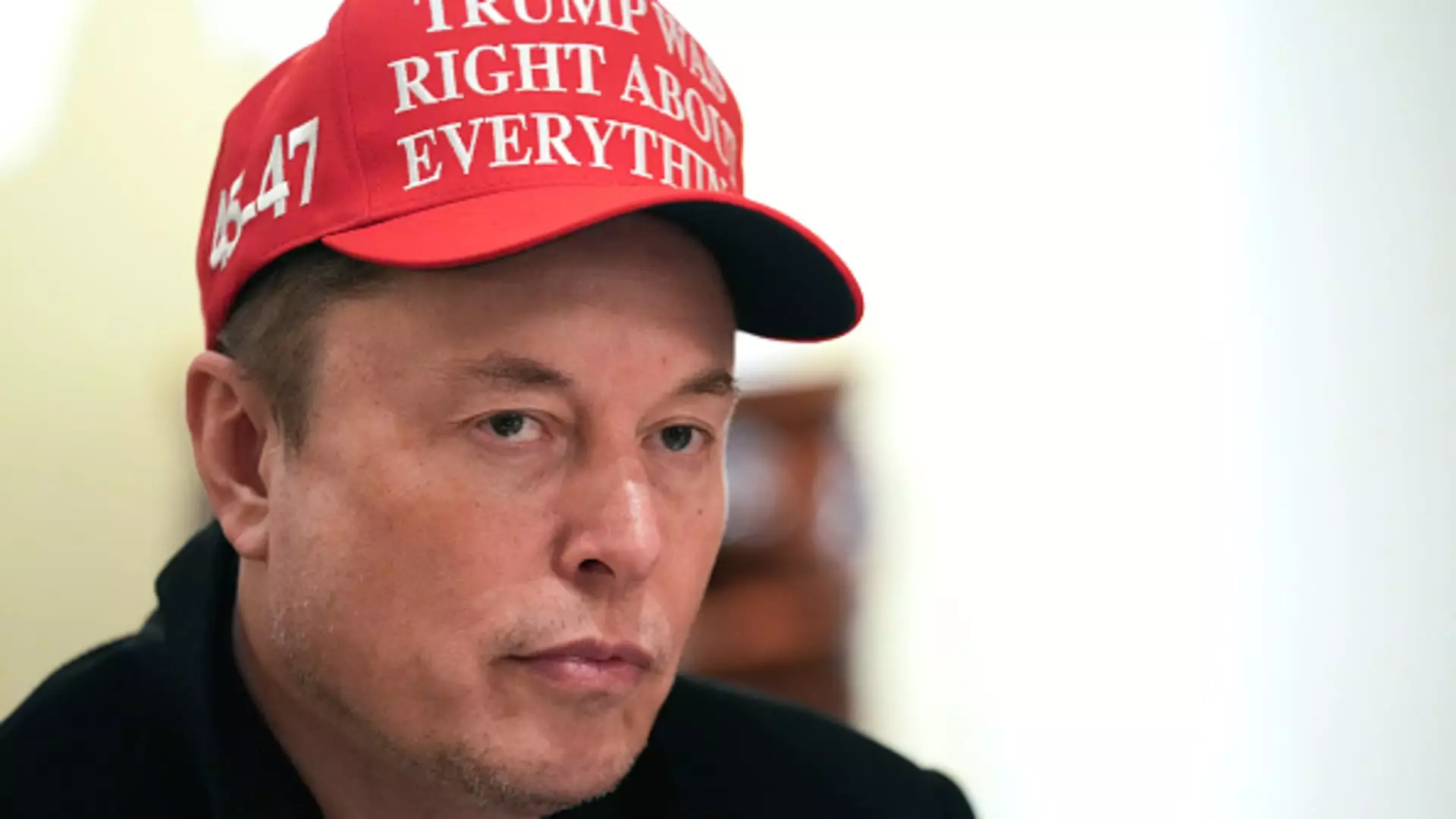Tesla Inc. has witnessed a significant decline in its stock value recently, with shares plummeting nearly 6% just a day before the much-anticipated first-quarter earnings report. Closing at $227.50, the stock now hovers precariously above its year-low, representing a staggering 44% decrease since the beginning of the year. This downturn raises critical questions about the company’s brand image, which appears to be suffering from a form of “ongoing brand erosion,” as cited by various analysts.
The sheer frequency of declines—12 recorded drops of at least 5% within the year—suggests a worrying trend. For a company that once symbolized the pinnacle of innovation in the electric vehicle sector, the decline hints at deeper-rooted issues—one being the effective management of its public persona in an increasingly politically charged environment. Elon Musk’s multifaceted career, particularly his involvement in controversial political issues, has increasingly come under scrutiny.
The Human Element: Leadership and Public Perception
Tesla’s fortunes are inextricably linked to the public perception of its CEO, Elon Musk. His actions and decisions resonate far beyond the automotive industry, influencing everything from investor sentiment to consumer behavior. In recent times, Musk’s entanglement with political controversy, particularly his support for controversial figures like Donald Trump, has sowed seeds of doubt among consumers and investors alike.
In an age where brand identity is crucial, Musk’s political dealings could be perceived as a liability. Recently, during an investor inquiry forum, questions poured in related to Musk’s activities and their repercussions on Tesla’s reputation. One investor pressed specifically for information on how Tesla’s board plans to counteract the brand damage caused by these activities. The concern is not just self-serving; it’s a reflection of the growing chasm between Tesla’s intended market position and the reality of its branding challenges.
Consumer Sentiment: Declining Interest in Tesla
Recent data from research firm Caliber paints a bleak picture of consumer intent. In March, only 27% of survey respondents expressed interest in purchasing a Tesla, a stark drop from 46% in January 2022. Such indicators reveal a potential endangerment of Tesla’s customer base, with brand loyalty increasingly at risk.
This declining sentiment could be attributed to the company’s inability to navigate its image amid political turmoil and its slow-moving technological advancements. As investors eagerly await the first-quarter earnings report—projecting a slight decline in revenue—growing apprehensions around crucial aspects like Full Self-Driving technology and anticipated vehicle deliveries indicate significant consumer wariness. The reported figure of 336,681 vehicle deliveries representing a 13% drop compared to the previous year further underscores this troubling trend.
The China Factor: Competition and Market Dangers
Apart from brand erosion in the U.S. and Europe, analyst reports highlight the looming threat of diminished demand in China. The Chinese market, vital for Tesla’s ambitious growth plans, poses unique challenges, especially against a backdrop of nationalistic consumer tendencies and burgeoning competition from domestic brands. Analysts suggest that weakening demand could force Tesla to rely increasingly on exports from China, thus introducing price instability and margin compression—a combination that could spell trouble for its profitability.
As tensions rise over the potential impact of U.S. tariffs related to Trump’s administration, the ripple effects on revenue and operational strategies for Tesla cannot be understated. Analysts at Oppenheimer have noted that these tariffs could lead to significant obstacles, making it more crucial than ever for Tesla to robustly address these challenges in its earnings calls and future business strategies.
Calls for a Strategic Reevaluation
Famed analyst Dan Ives, a known proponent of Tesla, is fervently urging for a “turnaround vision” during the forthcoming earnings call. His insights encapsulate the essence of the dilemma Tesla now faces: the need to realign innovative aspirations with the market’s changing demands and consumer expectations. As competition intensifies, both domestically and abroad, merely riding on past accolades won’t suffice.
Investor unease has manifested itself into significant pressure on Tesla’s leadership, compelling them to shift focus back to the core business of automaking amidst distractions. A reiteration of commitment towards innovation, clarity around full self-driving capabilities, and steering momentum back to its electric vehicle lineup are items of urgent necessity. Only time will tell if Tesla can effectively navigate these turbulent waters or if brand erosion will continue to severely impact its standing in an increasingly competitive marketplace.

